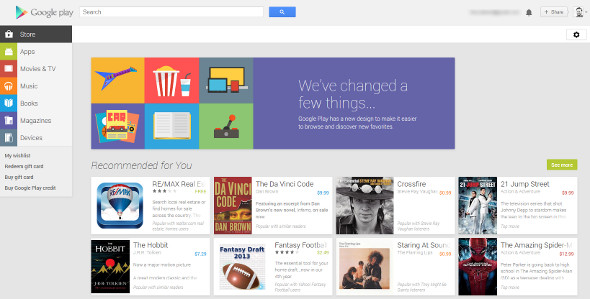Consumers Win As Mobile Industry Looks To Mandate Easy-To-Read App Privacy Policies
We download mobile apps like it’s nothing; Apple and Google’s respective app stores each hit the 50 billion download mark recently, after just a few years each in the business. Yet mobile apps are, as Natasha Singer of the New York Times calls them, Trojan horses of sorts. We let them into our lives and onto our devices without really knowing what sort of information they might extract and what parties they might send it to.
The mobile industry, app developers, and associated advocacy groups, led in part by the National Telecommunications and Information Administration (NTIA), have developed an idea that could help consumers have some clear information about which and how much personal data a given app may be collecting from a user. Essentially, it’s a short-form notice that offers up that information in a simple, brief document; these documents would all follow an industry-wide format, so users could easily compare one app to another.

Google Play Store
It’s essentially doing for the mobile industry what nutrition labels did for the food industry. Entities can sign a voluntary code of conduct and agree to this practice for the time being as the idea is tested in the wild.
The code of conduct would require devs to let users know if their user data in eight categories was being collected. The categories include biometrics, browsing history, phone calls and text logs; your contacts’ information; financial data, medical info, location data, and stored files.

App Store
Some argue that this measure doesn’t do enough to protect privacy and keep users informed, but it’s still something of a landmark for mobile consumers. Lengthy user agreements written in legalese are only helpful insofar as they protect companies from litigation; to suggest that those documents are there to help consumers make informed decision about using products and services is disingenuous. Even if these labels don’t go far enough, people will be more aware of and therefore slightly more in control of their data, which is a good thing.
The mobile industry, app developers, and associated advocacy groups, led in part by the National Telecommunications and Information Administration (NTIA), have developed an idea that could help consumers have some clear information about which and how much personal data a given app may be collecting from a user. Essentially, it’s a short-form notice that offers up that information in a simple, brief document; these documents would all follow an industry-wide format, so users could easily compare one app to another.

Google Play Store
It’s essentially doing for the mobile industry what nutrition labels did for the food industry. Entities can sign a voluntary code of conduct and agree to this practice for the time being as the idea is tested in the wild.
The code of conduct would require devs to let users know if their user data in eight categories was being collected. The categories include biometrics, browsing history, phone calls and text logs; your contacts’ information; financial data, medical info, location data, and stored files.

App Store
Some argue that this measure doesn’t do enough to protect privacy and keep users informed, but it’s still something of a landmark for mobile consumers. Lengthy user agreements written in legalese are only helpful insofar as they protect companies from litigation; to suggest that those documents are there to help consumers make informed decision about using products and services is disingenuous. Even if these labels don’t go far enough, people will be more aware of and therefore slightly more in control of their data, which is a good thing.

